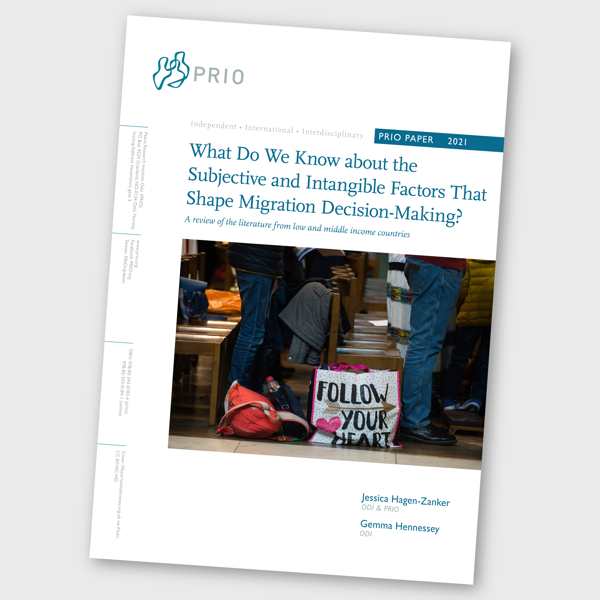Long dominated by economic models, research on migration decision-making has begun to acknowledge the myriad unobservable and intangible factors. This includes psychological, cognitive, emotional, and behavioural factors, as well as individuals' personal and normative belief and value systems, that also shape migration decision-making.
This review synthesises the new and rapidly growing inter-disciplinary body of evidence on the subjective and intangible factors contributing to migration decision-making, with a focus on low and middle income countries. A total of 182 studies are included in the review. The studies are grouped under four broad categories: 1) imagination – the mental pictures people make when contemplating migration, imagining and visualising themselves in a future time and place; 2) personality traits – traits such as extraversion, patience and adaptability, as well as individuals' risk tolerance or risk aversion; 3) emotions and feelings – the layers of emotion dispersed in the decision-making process, including (lack of) hope, love and intimacy, place attachment and feelings of discrimination/inequality; and 4) beliefs and values – internalised norms and individual beliefs, including religious or political beliefs, and values, such as family orientation.


.jpg?x=400&y=600&m=Cover&)





